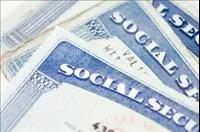Question: My daughter is unable to work and receives Supplemental Security Income (SSI), can I give her money to help pay her bills without reducing the amount of her benefit?
Answer: You can provide assistance to your daughter in some ways but you must be careful, there are very strict rules regarding what you can pay for and how you can pay for it.
Supplemental Security Income (“SSI”) is a means tested income program created to provide income to aged, blind and disabled persons who have little or no other income. In 2021, as a single person, your daughter must have limited income and not more than $2,000 in countable assets to be eligible for SSI. However, unlike Medicaid, purchase of certain goods or services may affect SSI eligibility.
The theory is that since SSI benefits are specifically intended to pay for a person’s food and shelter, if that person receives those goods or services from another source, then less SSI benefits are needed. As a result, if you pay the beneficiary’s rent, grocery bills, and meals, you would be reducing his or her need for SSI benefits. Maximum reduction of SSI benefits would be 1/3 of the SSI benefits for that month.
Under current federal law, SSI is intended to pay for the beneficiary’s food and shelter. Once an individual is deemed eligible for SSI, they are considered “categorically needy”, which automatically entitles the SSI recipient to receive Medicaid benefits in New York State. If the recipient receives too much income or has assets that are too great, he or she is likely to lose SSI eligibility — and the automatic Medicaid coverage along with it.
There are certain assets that an SSI recipient can have that are not a “countable resource,” meaning they can own these assets in addition to the $2,000 they are allowed. Your daughter can own a home, household goods including furniture and personal effects, one automobile, certain types of life insurance, burial plots and certain other exempt assets. In addition, certain types of income are not countable in determining eligibility.
If you are going to give your daughter some assistance each month or if there is a supplemental needs trust that has been created for her benefit, it is important to follow the SSI rules regarding this assistance. Any cash or money given to the beneficiary will reduce his or her SSI benefits on a dollar-for-dollar basis. This includes cash payments but also buying her postage stamps or a winning lottery ticket.
Any person may make payments on the SSI beneficiary’s behalf to a third party which result in the beneficiary receiving items that are not food or shelter; this is not considered income to the recipient. Examples of this are payments made to a provider of medical or social services for care rendered to the beneficiary. You cannot pay for food or shelter as that would be deemed to “supplant” the SSI benefits intended for that purpose. You can pay for anything other than food and shelter and it will not be counted as income.
The SSI rules are extensive and must be followed meticulously. Any failure to do so can result in a loss of benefits in a given month or for multiple months. While the loss of income is a problem for most recipients, the loss of medical coverage through the Medicaid program can be a far greater loss. SSI recipients or their representative payees should seek the counsel of an attorney that is well-versed in the rules and reporting requirements to ensure their benefits stay intact.





